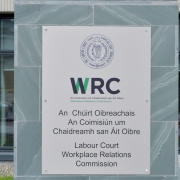Rents in Commercial Leases and Covid-19
Introduction
On 30 November 2021, the High Court in Foot Locker Retail Ireland Limited v Percy Nominees Limited [2021] IEHC 749 delivered a judgment regarding Foot Locker’s tenancy and commercial lease on Grafton Street. Foot Locker argued it did not have to pay rent to its landlord as the contract was “frustrated”.
This judgment is of particular importance during the ongoing Covid-19 pandemic as it examines commercial leases and the possibility of arguing argument that they are incapable of being performed and are therefore “frustrated”. Frustration occurs when an unforeseen event occurs after a contract is entered into which is outside the control of the parties and which makes the contract either physically or commercially impossible or illegal to perform.
In March 2020 all non-essential retail stores were obliged to close pursuant to Health (Preservation and Protection and other Emergency Measures in the Public Interest) Act 2020. In line with this, Foot Locker closed all stores in Ireland and, with one exception, reached an accommodation with all of their landlords regarding reduced rent. The only landlord who was unresponsive was the in respect of their premises on Grafton Street, Percy Nominees Limited being the landlord.
Foot Locker failed to pay their rent for Grafton Street from 17 March 2020 to 7 June 2020. On 21 July 2020, Percy Nominees Limited served a 21-day notice seeking payment of all arrears, failing which a petition would be brought to wind up Foot Locker. In the light of this, Foot Locker instituted proceedings on 11 September 2020 seeking a declaration that the lease was “frustrated” and that Foot Locker had no liability for rental payments under the lease as and from 24 March 2020.
Foot Locker’s arguments were based:
- on certain sections of their commercial lease and that the common intention of the parties had been frustrated or partially frustrated; and
- on the contention that the contract was frustrated or partially frustrated to such an extent that Foot Locker was not obliged to pay rent.
The court rejected both of these arguments.
The terms of the lease
Foot Locker tried to rely on a clause in the lease that it had to “keep open” the business. They argued that they could not “keep open” as per the lease and therefore the lease was impossible to perform and frustrated as the business had to close.
This argument was rejected by the court who set out that the “keep open” clause was in relation to normal trading hours and nothing to do with closures. The court examined the true intentions of the parties when the lease was drafted in 1991. The court found that Foot Locker was not in breach of the “keep open” clause even though it did not open the Grafton Street premises for business as this occurred at a time when it was illegal to do so. Also, the lease set out that Foot Locker had to comply with Government legislation and comply with the requirements of the local authority. The fact that Foot Locker had to comply with legislation only reinforced the view that it was not in breach of the contract.
In relation to not having to pay rent during this time the Court also rejected that argument. The court set out that the lease made no provision for a suspension of rent in such circumstances, unlike (for example) if the premises were destroyed or damaged as provided for in the lease.
The doctrine of frustration and partial frustration
The court then examined the principle of frustration and partial frustration. The court set out that when a contract is “frustrated” the contract is at an end. This means that both parties have no obligations to each other and neither party has an entitlement to receive any benefit from the other.
However, this case was about Foot Locker not paying rent but continuing to occupy the premises under the lease. Therefore, Foot Locker could not use frustration as an argument.
The court also rejected the argument of partial frustration as being a principle not founded in Irish law. The court found that the concept of partial frustration is completely contrary to the doctrine of frustration because for partial frustration the contract continues and doesn’t end. Therefore, the court rejected that such a principle exists in Irish law.
The court briefly looked at the concept of partial discharge if an obligation under a contract is severable. However, the court found that the payment of rent is a basic obligation under a commercial tenancy and is therefore not severable.
Conclusion
It will be difficult to argue successfully before the Irish Courts that the doctrine of frustration will permit a tenant to escape its primary obligations pursuant to a lease.
The argument of a contract being “frustrated” can only be brought forward when a contract is at an end. The concept of “Partial frustration” does not exist in Irish law.
This decision is important for commercial tenants and landlords. In effect and barring any specific agreement to the contrary a commercial tenant must pay rent to its landlord despite lockdown restrictions imposed by Government.
For further advice, please contact one of Micheál Ó’Mulláin, Aeibhin Cahalan, Joan Byrne or Cian Duane.








